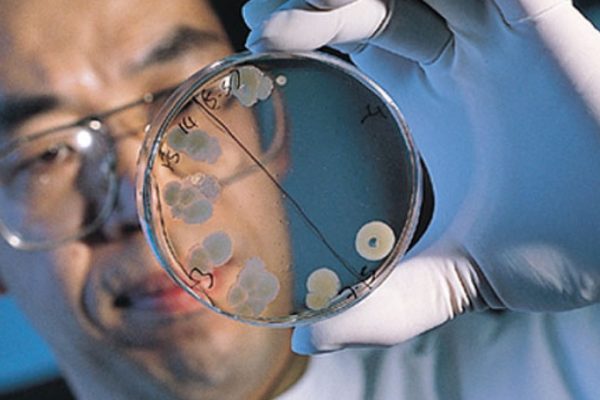ABOUT LAB4 BY CULTECH
Lab4 is the proprietary group of probiotic bacteria developed by Dr Nigel Plummer and his team of scientists at Cultech Ltd and used in probiotic products around the world for almost 20 years.
Microbiologists Nigel and Sue Plummer established Cultech Ltd in 1994 with the vision for a company with research at its heart
The company now employs a team of 20 research scientists and re-invests a significant amount of money into research every year, studying the use of probiotics and other nutritional compounds in supporting health.
The scientists at Cultech have more than 30 years’ experience of the discovery and development of probiotic bacteria and the production of probiotic products, both as stand-alone probiotics and in combination with other nutrients. They have spent the last 20 years undertaking clinical research to prove the effectiveness of the Lab4 consortia of probiotic strains, which are now supported by robust and rigorous testing and extensive research in vitro, in vivo, ex vivo and clinical trials.
Cultech Ltd is licensed by the MHRA to produce probiotics for clinical studies. Probiotics are different from other supplements in that bacterial strain differences mean that benefits can be specific to an individual product. Ongoing research and a detailed understanding of the developments in the probiotic industry are both necessary to stay ahead of the game. Approval to give probiotics to almost 500 healthy newborn babies for the Swansea Baby Study is a testament to the quality and safety of the Lab4 products.
Lactobacillus acidophilus – CUL 60
Lactobacillus acidophilus – CUL 21
Bifidobacterium bifidum – CUL 20
Bifidobacterium animalis subsp. lactis – CUL34
Lactobacillus salivarius – CUL 61
Lactobacillus paracasei – CUL 08
Bifidobacterium bifidum – CUL 20
Bifidobacterium animalis subsp. lactis – CUL34
Lactobacillus acidophilus – CUL 60
Lactobacillus acidophilus – CUL 21
Bifidobacterium bifidum – CUL 20
Bifidobacterium animalis subsp. lactis – CUL34
Lactobacillus plantarum – CUL 66
The strains of bacteria used in the Lab4, Lab4B and Lab4P consortia are lactic acid bacteria (LAB) and bifidobacteria that have been isolated from the gut microbiota of healthy humans and then screened for appropriate probiotic characteristics, ranging from resistance to stomach and bile acids, to robust capability for large-scale in vitro cultivation and commercialisation.
The Lab4 consortium combines four strains of bacteria isolated from human gut microbiota – two strains of Lactobacillus acidophilus, one Bifidobacterium animalis subsp. lactis and Bifidobacterium bifidum.
The Lab4B consortium also combines four strains of lactic acid bacteria and bifidobacteria that have been specifically designated to reflect the gut of newborn babies and infants. This combination contains the same Bifidobacterium animalis subsp. lactis and Bifidobacterium bifidum as the Lab4 consortium, but contains Lactobacillus salivarius and Lactobacillus paracasei instead of the two Lactobacillus acidophilus strains.
The Lab4P consortium combines five strains of commensal bacteria – the four extensively researched Lab4 strains combined with Lactobacillus plantarum.
The strains of bacteria used in the Lab4, Lab4B and Lab4P consortia are lactic acid bacteria (LAB) and bifidobacteria that have been isolated from the gut microbiota of healthy humans and then screened for appropriate probiotic characteristics, ranging from resistance to stomach and bile acids, to robust capability for large-scale in-vitro cultivation and commercialisation.
The Lab4 consortium combines four strains of bacteria isolated from human gut microbiota – two strains of Lactobacillus acidophilus, one Bifidobacterium animalis subsp. lactis and Bifidobacterium bifidum.
The Lab4B consortium also combines four strains of lactic acid bacteria and bifidobacteria that have been specifically designated to reflect the gut of newborn babies and infants. This combination contains the same Bifidobacterium animalis subsp. lactis and Bifidobacterium bifidum as the Lab4 consortium, but contains Lactobacillus salivarius and Lactobacillus paracasei instead of the two Lactobacillus acidophilus strains.
The Lab4P consortium combines five strains of commensal bacteria – the four extensively researched Lab4 strains combined with Lactobacillus plantarum.
The most clinically studied probiotic consortia in the world
Since their inception, the Lab4 consortia have been the subject of more than 22 major human clinical trials as well as over 100 basic and mechanistic scientific investigations. Most of this work has been published in peer-reviewed journals.
These consortia have also been used by many popular brands of probiotics all over the world to benefit many thousands of people.
The Lab4 story so far...
The development of Lab4 was based upon experience in the animal husbandry market and an understanding of the positive effect that probiotics had in animal health, particularly in relation to gut health, gut infections and diarrhoea – the goal was to produce a multi-strain probiotic that could replicate this effect in humans.
The isolation and selection of bacterial strains suitable for inclusion in a multi-strain human probiotic involved a two-stage screening program of many strains of organisms based on a range of characteristics.
The program of testing was based on microbiological principles coupled with in vitro screening techniques and first-hand knowledge of the efficacy of probiotics within the animal husbandry sector. Selection was based on a two-phase system to ‘weed out’ strains at various stages through the selection process to enable the most appropriate strains to be selected.
The first of these phases involved identification of the strains and measurement of survival potential, the ability to colonise the gut, antimicrobial properties and viability. The second phase involved identification of growth capability, antibiotic susceptibility and storage potential and the third phase of screening is ongoing and involves research trials and product testing and development, along with customer feedback.
The clinical element of this third phase began in 2004, when Cultech published its first human trial on the Lab4 consortium. The initial clinical trials focused on the effects of the probiotic blend on Clostridium difficile diarrhoea and were quickly followed with research into the effects of Lab4 on the gut microbiome when taken alongside and following antibiotics. Since then, the consortia have been studied in relation to IBS and other gut issues, athletic performance, cognitive health, immunity, quality of life and weight loss.
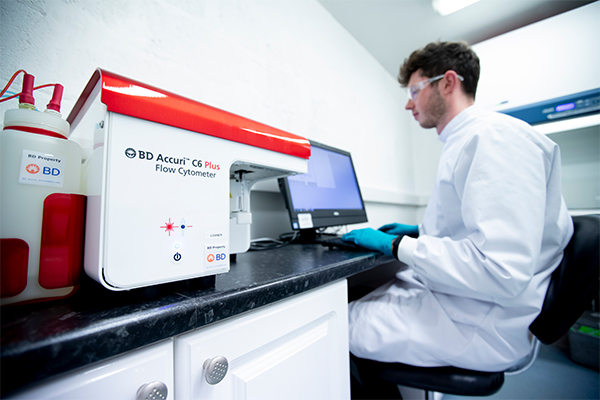
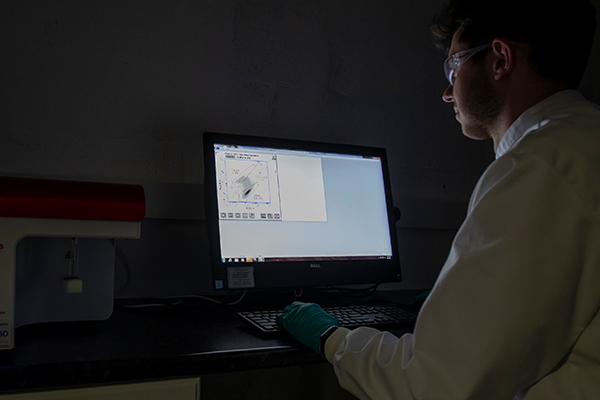
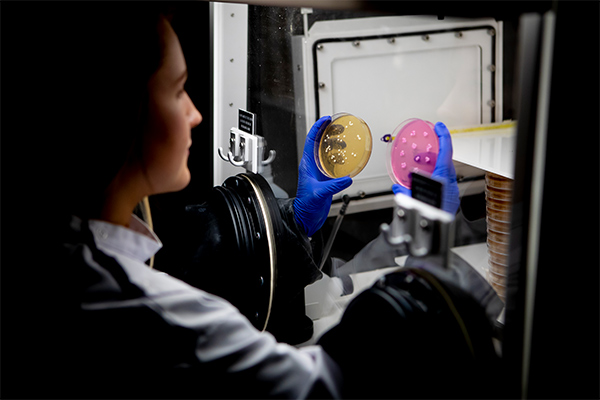
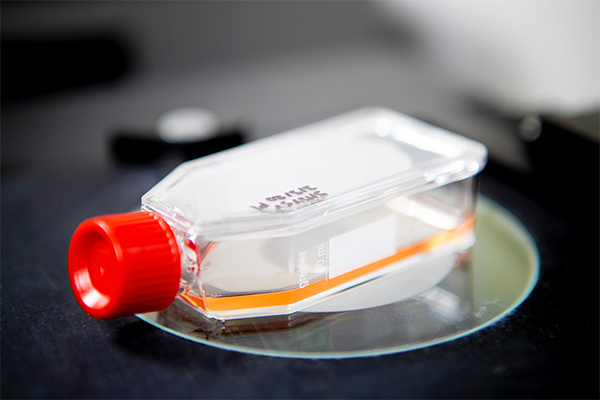


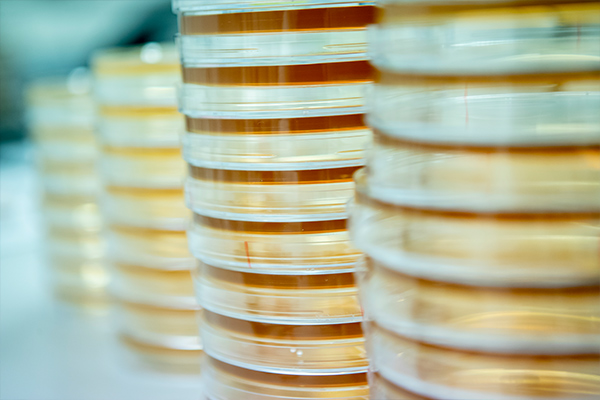
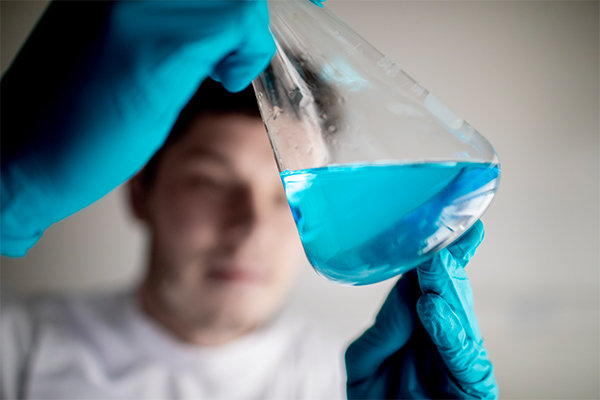
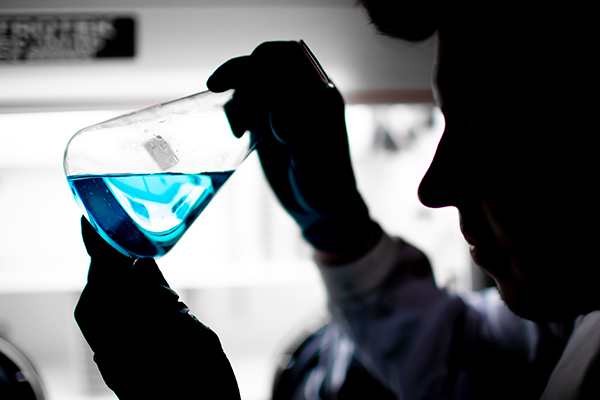

Our Credible Research Team
The Lab4 Probiotics research science team combines a wealth of varied experience in both in-vitro and in-vivo research.
The team members have worked directly with a wide range of scientific establishments, including research hospitals and universities throughout the UK and Europe, to publish robust and exciting research identifying the impact of probiotics on the microbiome.

DR LEI JIANG
TECHNICAL/RESEARCH MANAGER

DR DARYN MICHAEL
SENIOR RESEARCH MANAGER

DR TOM DAVIES
RESEARCH MANAGER






